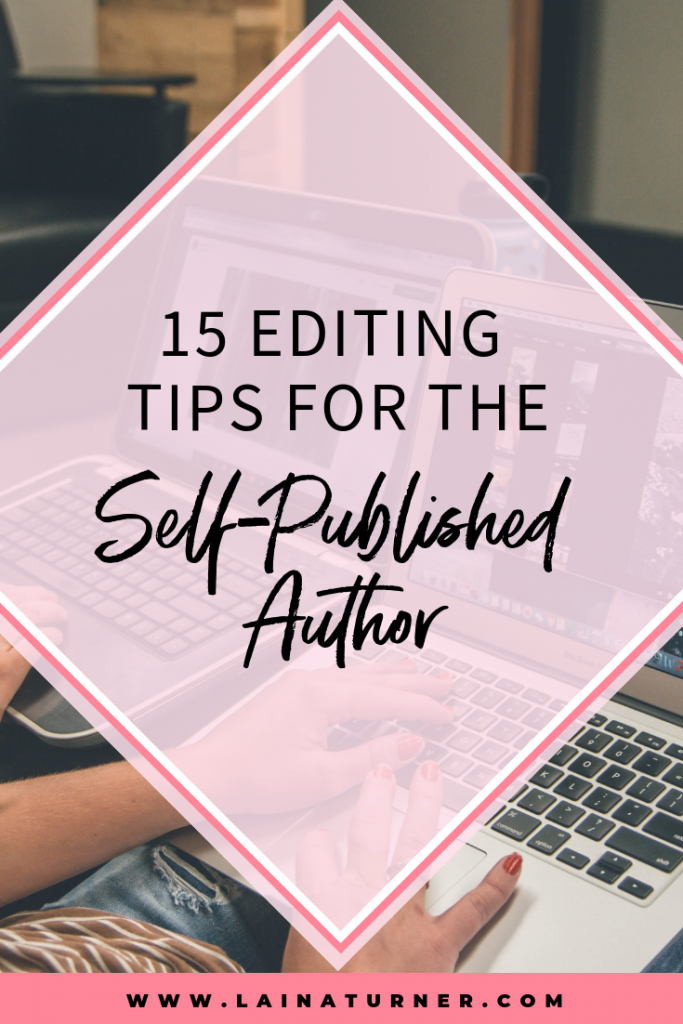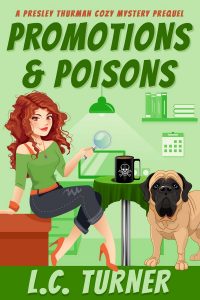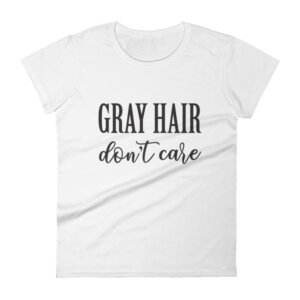15 Editing Tips for the Self-Published Author
Editing Tips for the Self-Published Author
I’m a writer. I like to write. In fact, I love to write. I love, love, love the making up stories aspect of being a writer. I do NOT, however, enjoy the mechanics of writing.
The grammar and sentence structure part. And frankly, since spell check became a thing, I can’t spell to save my life either.
More than even not enjoying it. I suck at it. Interesting, since I have 3 advanced degrees and teach at the college level.
I CAN write good (haha that’s a joke), but I have to be extra attentive to catch my own mistakes and then sometimes even then I don’t. Attention to detail is not one of my strengths.

You see I have some bad habits. I totally blame this on the fact that my mother was an English teacher. Why is it her fault you’re wondering?
Because she constantly corrected me when I was little and I found it so annoying I intentionally tried to fail English when I got to high school.
What can I say? I was a rebellious thing. Though the joke is on me. For as much as I did not want to be like my mother, I am a writer and teacher. Exactly what she was. Funny how that happened.
Editing is a tedious process, but it’s a necessary evil for a writer. Both content editing to catch story irregularities and line editing to catch the mechanical errors.
Below are the most common self-editing tips that I tell the writers I work with. I also tell them to have their work professionally published. I run my work through 2, sometimes 3 editors, and STILL there are mistakes.
Like I said. It’s not an easy process.
15 Editing Tips for the Self-Published Author
- Don’t depend solely on spell check. Spell check is an awesome tool, but it’s not entirely accurate. It doesn’t understand homonyms and words that are close in spelling but have many different meanings. Such as Bob and boob.That’s a real mistake. I’ve seen it.Grammar check is also a tool not to be entirely dependent on. However, with that said I have settings that catch some of my bad habits (like passive voice and not using contractions, academic holdovers) and force me to fix.I also use the website Grammarly which has been a tremendous help to me but again know that these tools aren’t substitutes for a professional editor.
- Don’t have a false sense of how awesome you are at catching your own mistakes. You might think you’re an amazing editor, but you want to be careful. You might be good at editing others work but are you that good at your own? It's good to have an independent editor, just sayin.
- Don’t use big words. I know you’re smart. You know you’re smart. Your reader doesn’t care. Unless of course, you’re writing a book about astrophysics or brain surgery. And if that’s your plan you’re reading the wrong blog.If it’s a mystery novel you're writing your reader wants to be entertained not stuck looking up every other word to find out what it means.
- Don’t use needless words. This one can be a challenge because, on one hand, you want to be descriptive, but you don’t want to go on and on so long that the reader forgets what you were talking about in the first place. Let the reader make up some of the details themselves.
- Slow down on the adverbs. We all have our issues. Mine in the novelist realm is my overuse of adverbs (my issues in non-writing areas would be too many to list and not the best topic for this particular post). Adverbs tend to weaken your writing. The telling instead of the showing creeps in, and that’s not what you want.Adverbs are for the lazy writer as my editor tells me after she’s crossed out a hundred of them. I’m sure thinking all the while I cared more about re-watching all seasons of Grey’s Anatomy than to proofread my book.
- Redundancy. This is also an easy mistake to make. It’s an easy trap to fall into because we forgot we already wrote it’s an easy trap to fall into (see what I’m doing here). Or maybe what we wrote is such a fantastic line we want to use it again. In either case, don’t.
- Avoid crutch words. When speaking these are words that give us a pause without staying silent. The most common crutch words are: actually, obviously, literally, basically, and like.Notice how 4 out of those 5 are also adverbs. Now go back to the last thing you wrote and see how many of those words there are.Also look at how often you use just, very, and that. When I wrote my dissertation, the first thing my editor made me do was to go back through my document and find and delete THEM ALL. I was freaked out.Until I did what she asked and re-read my work and realized she was right. Taking out those words didn’t hurt at all and in fact, tightened up the sentences.
- Show don’t tell. Your reader needs to be engaged. This is why showing them what’s going on so they can be an interested observer is much more important than telling them.It can be tempting to put in the flowery language when writing dialogue because you think it is necessary to convey the proper feeling. But if you SHOW versus TELL it’s not necessary.“But I don’t want to,” Clarissa said with a hard tone. Or Clarissa’s mouth set in a grim line, “but I don’t want to.”In the first sentence I am telling the reader what is going on, but in the second I am letting them figure it out by the movement of Clarissa’s mouth. They can imagine how she is feeling.
- Don’t be impatient. Too often a book gets published before it’s ready and the very simple reason is the author was so excited to publish that book that she skimped on the editing.It’s also the most costly aspect so double the reason to skimp on it. But I would tell anyone that it's the most important place to spend money. The readability can make or break your book sales.
- Keep dialogue tags simple and don’t overuse them. Your reader isn’t dumb. If you have a stream of dialogue going, you don’t always need to put who said it. It can be more detracting than helpful.“I think it’s the blue house,” Adam said.“Are you sure it’s not the red one,” said Billy.“No. I’m sure it’s the blue,” Adam said.“I don’t agree. I think you’re wrong,” Billy said. “What do you think, Pam?”“I think Adam is right,” Pam replied.This example is a little over the top and annoying, but you see my point. Much better to have it go something like this:“I think it’s the blue house,” Adam said. “Are you sure it’s not the red one,” said Billy. “No. I’m sure it’s the blue.” “I don’t agree. I think you’re wrong. What do you think, Pam?” “I think Adam is right.” Short, simple, and too the point. Your reader will get it.
- Walk away. The absolute best tip I can give you is to walk away. When you’ve been working on your novel for months, a year, a decade you have the words burned into your brain. So it is easy to skip right over the errors.Take a step back and go work on something else and then come back to it and read it over again. You’ll be amazed at what you catch.
- Edit from a hard copy. I know this might seem old school but nothing beats good old-fashioned paper and pen. Especially, if that pen is green which I believe is the magic color of editing (purple is 2nd runner-up). Printing out a 50k word book takes a lot of paper, I get that. But it’s a lot easier to catch mistakes. At least it is in my opinion.
- Don’t treat your reader as if they are stupid. This tip is a sister to the show versus tell. Yes, you do want to be descriptive. Set the scene, let readers know what’s happening.You don’t want to spoon feed them every little tidbit. It’s not necessary. Plus, half the fun for a reader is filling in the blanks with your own imagination.
- Read it out loud. This is the best advice my middle school self ever received. It’s tedious, and it’s not that much fun, but it works.
- Measure twice cut once. I’m sure you’ve all heard that saying. And while I know cliches tend to get overused I like this one.It reminds me to pay attention to detail. To be patient and methodical. Things I’m not normally.
Editing takes a lot of time, but it's an element of book publishing that you want to dedicate your time and resources too to create the best book possible.


